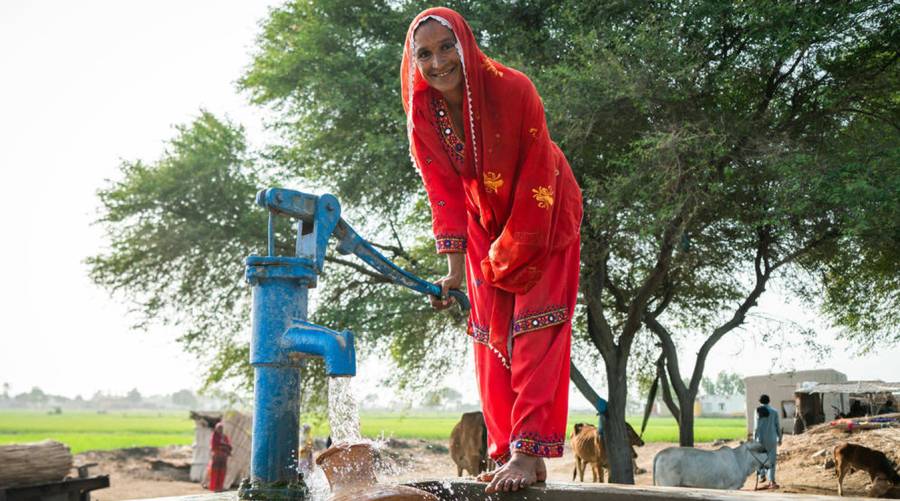WaterAid study shows economic toll of inadequate ‘WASH’ facilities

KARACHI: Inadequate access to Water, Sanitation, and Hygiene (WASH) facilities results in a staggering household cost amounting to Rs116.13 billion for Pakistan, reveals WaterAid's latest health study titled "Determining the Health Cost of Inadequate Water, Sanitation, and Hygiene in Pakistan."
The study finds that the country pays this cost in the form of the economic burden of illnesses such as malaria, diarrhea, and typhoid on a household, while lower-income households are affected disproportionately.
Led by Dr. Abid Aman Burki from the Lahore University of Management Sciences (LUMS), the study points out a critical public health challenge for the country.
Speaking at the report's launch, Prof Dr. Meher Taj Roghani, Member of the Senate Standing Committee on National Health Services, Regulations, Pakistan, underscored the urgency of tackling the challenge.
Muhammad Fazal, Head of Program Strategy and Policy at WaterAid, emphasized the findings of recent research studies highlighting poor WASH facilities as a leading cause of morbidity and mortality in Pakistan. He stressed the need for collective action to ensure access to safe WASH facilities for the improved health and nutrition of the Pakistani people.
Furqan Ahmed, Interim Country Director of WaterAid Pakistan, stressed the pressing need to address the impact of climate change on WASH and public health. He urged collective efforts to prioritize WASH interventions from a health perspective and strive towards achieving universal access to sustainable and safe WASH services in Pakistan.
The panel discussion featured experts including Dr. Masood Jogezai, Technical Consultant at the Ministry of National Health Services Regulations and Coordination; Itsuro Takahashi, WASH Manager at UNICEF; Dr. Shahzeb Mirza, Assistant Director of M&E at the Sindh Health Department and Dr. Abid Qaiyum Suleri, Executive Director of SDPI.
Advertisement
Trending
Popular
Gas Pain vs. Heart Attack: How to tell the difference and when to ...
-
Coconut oil supplement shows promise ...
08:00 PM, 20 Feb, 2025 -
Normal vitamin B12 levels may still ...
05:00 PM, 19 Feb, 2025 -
Revolutionizing Genomic research: The ...
02:00 PM, 19 Feb, 2025 -
Plastic burning for cooking and heating ...
06:15 PM, 18 Feb, 2025



